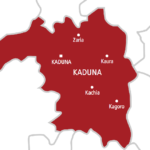
The Federal Capital Territory (FCT) Sector Commander of the Federal Road Safety Corps (FRSC), Ayuba G. Wobin, has urged the FCT Administration to open up more routes to decongest the AYA-Nyanya road so as to reduce fatal crashes.
When you started taking recalcitrant drivers for psychiatric test last year, the number was quite high. Has the number gone down?
Before I make a comment on that, let me correct an impression; it was not actually a psychiatric test, but Psychological Emotional Evaluation (PEV). As a matter of fact, PEV was flagged off by the corps marshal himself on June 30, 2017. When he flagged off the scheme, there were five critical offences he mentioned: taking one-way (route violation), beating traffic, use of phone while driving, dangerous driving and overloading. These are critical offences that are actually tagged as real consecutive factors that result in crashes in the FCT and Nigeria at large. He also established what he tagged “The Cobra” and we commenced enforcement on July 1, 2017, and of course, we have been on it.
The Cobras are mostly the ones you see at traffic light junctions; they use motorbikes and motor-vehicles. They go on patrol just like any other patrol we do; so anybody arrested committing any of these offences will certainly go to the hospital. We have four hospitals within the city that we send people to for this evaluation: National Hospital, Garki General Hospital, Federal Medical Centre, Jabi, and General Hospital, Karu.
Once you are arrested and you don’t come back with a report from the hospital, we will not release your vehicle or any other thing we collected from you when you were caught committing the offence.
You asked whether there’s reduction of such offences; yes, there is no motorist in the FCT that doesn’t know that when you are caught by the FRSC committing such offence you will be sent to the hospital. The ones that have had the experience; they are over 4,000, and we are still arresting.
No matter the position you occupy, no matter how poor or rich you are; if you commit any of the offences, you must go to any of the hospitals for this examination, no two ways about it.
We don’t have a limit to where or who we arrest. We can arrest anywhere once any of these offences is committed, and when we arrest you, if you are lucky, we confiscate your driver’s license and the vehicle’s particulars, but in most cases, we don’t confiscate them; we impound the vehicle.
We also have an offence in our operational ticket; somebody who is under the influence of alcohol or drugs, apart from the penalties we give you, we will issue you another ticket for alcohol or drugs because it has been confirmed that you are under the influence of drugs or alcohol. You must pay, and by the time you finish paying, we sit down with you and give you enlightenment on the dangers of what you have done.
The youths are worse hit among those that test positive to drugs and alcohol. What this means is that parents have to take charge of their children, quite a number of them are those who are sent outside the country for studies. From the interaction we had with some of them, we found out that they are the worse hit. So parents have to be careful in the kind of schools they send their children to, find out who their peers and friends are; you need to monitor them.
How do you manage pressure from highly placed individuals who beat traffic and want to get away with it?
I am an objective person when I am talking on issues like this. Let me start with the military; they don’t give personnel of FRSC trouble. In fact, some of them insist that you must not drive within the barracks if you don’t have requisite documents which permit you to drive; like driver’s licence and vehicle particulars.
Sometime ago, one commander organised an event and invited us. We went there and we were checking those things for them at the gate. We checked any driver that was coming out; if your papers were not complete we sanctioned them and they complied.
Politicians on the other hand; everybody can present himself as a politician, some obey traffic, while others do not. It is through interaction we get to know who anyone is. Having committed an offence, you tell me you are a politician; you are punishing yourself because if I don’t want to weld the big stick, that is the time I will stretch it because for you to be a politician, for you to be elected by the people, you must be above board, so what example are you setting for those you are representing? If a person introduces himself or uses a vehicle that is marked, that is when you will know that this person is a politician. By mere dressing, you may not know if a motorist is a politician or not. In all these, there is nobody that ever committed an offence and our men saw him and the offender was not arrested. We don’t give room for that.
The fact that car crash does not respect anyone; crash does not respect me in this uniform, so if I am involved in a crash, I may lose my life, I may be permanently disabled. If the grace of God is sufficient for me, I may come out unhurt or even if I’m hurt, I will be treated and I will go home to get healed. So once you make a mistake, it comes. That is why we say, “The road is patient, but the users are not.”
If you obey traffic rules and regulations you will have peace. If I should do that, you should do that and every other person should do that, then the issue of road crashes will fizzle out completely or reduced to the barest minimum.
What are you doing, along with other stakeholders, to reduce fatal crashes on the AYA-Nyanya route?
Sensitisation on good road use through support of media houses on how to use the roads properly; that’s what we are doing now. Most people know that the AYA axis between Kugbo and Nyanya Bridge is an issue as traffic troubles and crashes are regular there.
We have our men controlling traffic, some are on patrol along that route. We have a unit in Nyanya and an outpost in Karu that are strategically located to man that area.
I have directed one of my officers who is in charge of safety engineering to go and assess the place and look at the situation critically.
I intend to write a report to the Minister of the FCT on the need for a pedestrian bridge just before the Karu Bridge; the interchange there. It will help the motoring public.
The long term solution on the axis is to create more routes in form of bypasses so that the density of traffic will be reduced. It is like when some rivers are coming from different locations and these rivers empty at a particular spot; the spot will certainly be turbulent. That is what happens on that route.
There are anterior routes from that axis that empty at that Karu Bridge; as this person is struggling to park, another person is struggling to park and certainly you will slow down the speed you were coming with and this result to gridlock.
Every morning and evening, when you go to that place, you see that our men are on ground controlling traffic to ensure smooth flow so that even though you can’t go at the speed you were coming with, there is nobody that will stay in a particular place for more than 20 minutes except something happens; like some people not giving way to others or an accident.
One funny thing about holdup is that when you get there you won’t know what is actually causing it. However, dropping and picking passengers is one of the causes.
We need expansion on AYA to Zuba Road, Airport Road, City Gate to Giri and construction of more routes to take away pressure from these particular axes. It’s a long term plan, but I believe one day it will be a thing in the past.
Kubo is an up or down slope depending on where you are coming from. Most accidents there are as a result of heavy duty vehicles coming down the slope and losing control. You will hear of issues like “break failure” which make the vehicle to ram into other vehicles and sometimes into people waiting to board vehicles.
If people coming from the Orozo end and they have a route that connects them to AYA directly, it will reduce gridlock along that axis. If there is a route that connects the Mararaba, Masaka axis directly to Dutse-Alhaji or Mpape, I believe it will put this issue in the past.




